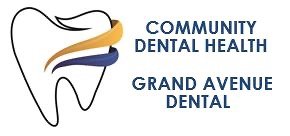Our very own Executive Director, Michelle Vacha, will be speaking at this Healthier Rural West Summit!
Crossing the Continental Divides - Transitioning from Crises to Well-Being
This year marks the 150th anniversary of the completion of the First Transcontinental Railroad which occurred at Promontory Point, West of Ogden, Utah. The event culminated with the driving of a ceremonial golden spike, engraved with a paean to ‘the unity of our Country, as this Railroad unites the two great oceans of the world’. The spike was driven by Leland Stanford, formerly the Governor of California, then the president of the Central Pacific Railroad, later the founder of Stanford University.
The same motivations - conveying people across continental divides in the spirit of unity – are operative in the Healthier Rural West Summit, taking place March 19-21, 2019 at the Little America Hotel in Salt Lake City, Utah. The Summit builds on momentum from 2018, when Stanford University’s Bill Lane Center for the American West convened a workshop to devise strategies for improving health care and wellness in the rural West, entitled ‘Improving Health and Health Care in the Rural American West’. That workshop featured a commencement statement by Phil Polakoff, Consulting Professor at Stanford University School of Medicine and Affiliated Scholar at the Center.
Dr. Polakoff recognized a series of persistent divides hampering care coordination, efficacy, and efficiency in rural health. Inequities between socio-demographic groups, geographic isolation, and differential distribution of the social determinants of health conspire to build up silos among stakeholders, and lead to a fragmented system of health and healthcare delivery. As a result, ‘a striking gap in health between rural and urban Americans’ has opened, mirrored by analogous gaps in health status and life expectancy between generations, broadband availability and adoption – creating tech ‘haves and have-nots’ between regions, and skewed medical education and physician retention rates leaving rural areas underfunded and underserved.
At the granular level:
• Rural residents are poorer on average; per capita incomes are >$7,000 lower than for urban residents
• Rural life expectancy – male and female - is approximately two years less than for urban residents
• Only about ten percent of physicians practice in rural America despite the fact that nearly one-fourth of the population lives in these areas
To transition from these crises to well-being, bridging divides is a necessary precondition. The Healthier Rural West Summit is therefore structured to Convene key stakeholders, Connect thought and opinion leaders with practitioners and community members, Communicate nascent issues and lessons learned, foster Collaboration, and secure Commitments from relevant parties throughout the Rural West.
Join us for The Healthier Rural West Summit. The Summit is a two-day, strategic gathering of stakeholders from across the Rural West that will offer participants an inspiring vision of rural cooperation and leadership in the information and health economies. Get your ticket at www.healthierrualwestsummit.org
Given the gravity of the health challenges facing those of us who call the Rural West home, transitioning from crisis to well-being will require significant mutual effort. “In these times, if ‘I’ is replaced with ‘We’, even illness becomes wellness.”
